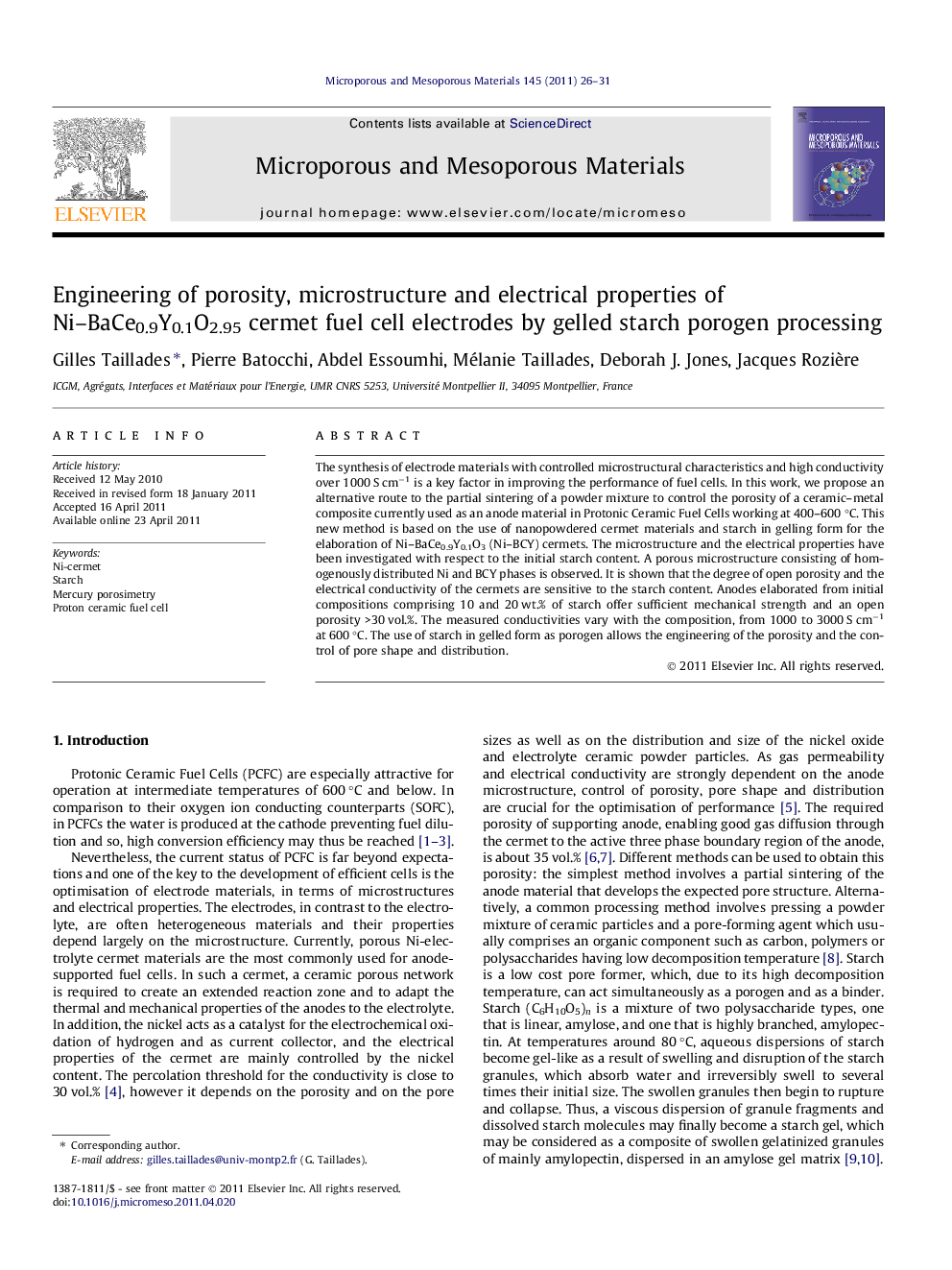| کد مقاله | کد نشریه | سال انتشار | مقاله انگلیسی | نسخه تمام متن |
|---|---|---|---|---|
| 74287 | 49087 | 2011 | 6 صفحه PDF | دانلود رایگان |

The synthesis of electrode materials with controlled microstructural characteristics and high conductivity over 1000 S cm−1 is a key factor in improving the performance of fuel cells. In this work, we propose an alternative route to the partial sintering of a powder mixture to control the porosity of a ceramic–metal composite currently used as an anode material in Protonic Ceramic Fuel Cells working at 400–600 °C. This new method is based on the use of nanopowdered cermet materials and starch in gelling form for the elaboration of Ni–BaCe0.9Y0.1O3 (Ni–BCY) cermets. The microstructure and the electrical properties have been investigated with respect to the initial starch content. A porous microstructure consisting of homogenously distributed Ni and BCY phases is observed. It is shown that the degree of open porosity and the electrical conductivity of the cermets are sensitive to the starch content. Anodes elaborated from initial compositions comprising 10 and 20 wt.% of starch offer sufficient mechanical strength and an open porosity >30 vol.%. The measured conductivities vary with the composition, from 1000 to 3000 S cm−1 at 600 °C. The use of starch in gelled form as porogen allows the engineering of the porosity and the control of pore shape and distribution.
Gelled starch was found to be an attractive pore former for the elaboration of Ni cermets with the required porosity and high conductivity.Figure optionsDownload as PowerPoint slideHighlights
► Porous Ni–BaCe0.9Y0.1O2.95 as cermet materials.
► Microstructure controlled by gelled starch processing.
► These materials offer sufficient mechanical strength and open porosity >30 vol.%.
► Materials used as an anode in Protonic Ceramic Fuel Cells working at 400–600 °C.
► Measured conductivities from 1000 to 3000 S cm−1 at 600 °C.
Journal: Microporous and Mesoporous Materials - Volume 145, Issues 1–3, November 2011, Pages 26–31